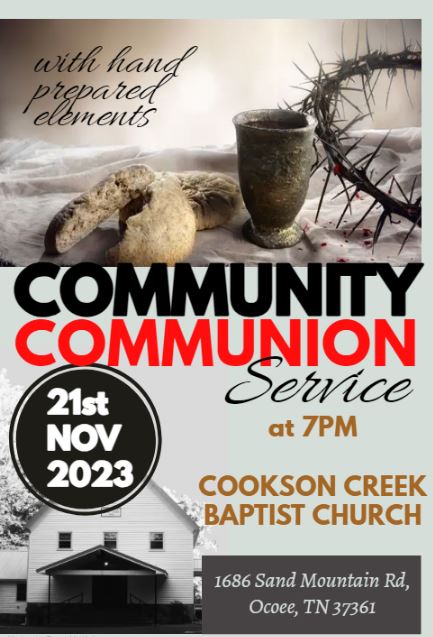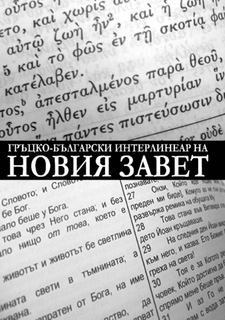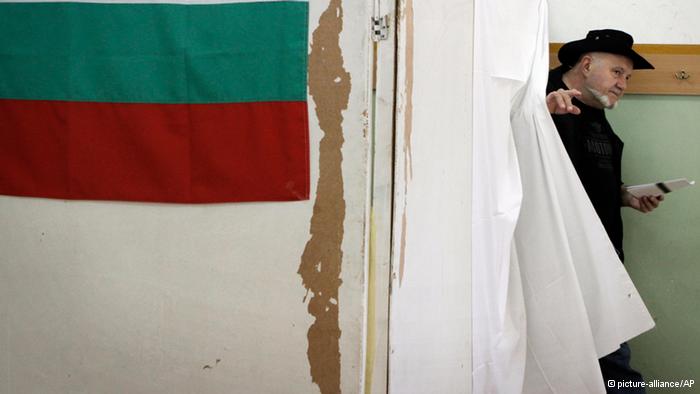DO NOT COPY THE FIRE!

By Kathryn Donev
If I were to ask you if it would be okay for your child to hang out with a friend that actively practices witchcraft, I’m certain you would be appalled by the question and your very quick response would be a sharp, “No”. But when encompassed in a kid friendly fantasy world, a young boy named Harry who studies at a school of wizardry and possesses a simple stick that shoots cool fireballs seems harmless.
I’m reminded of a story in Leviticus in which two boys thought it would be okay to play with strange fire.
It’s a very simple story. Arron’s sons, Nadab and Abihu, who were priests of the wilderness tabernacle took their censers and put unauthorized fire in them. They then were instantly consumed by the Fire that came from the presence of the Lord and died. The Potter’s fire, the true fire, the authorized, familiar fire consumed everything. This is a lesson that teaches that we are not to let our children play with strange fire. A potter’s fire that seems so innocent, could cost your children their life.
It is our responsibility as parents to teach our children that we are not to play with cool looking fire even though it’s only “make-believe”. Witchcraft is real. It is dangerous. It is confusing and The Potter is not a God of confusion. We must protect our children from being consumed.

Polk Revival Two Months and Going Strong

When we wrote back in March and again last month, we could hardly imagine what God had in store for our area. After eight full weeks of revival in Polk County more revivals are on our schedule this month. Swept by the wave of the Spirit, several independent churches have joined in with parallel meetings, thus multiplying the expected attendance exponentially.
Initially 7, now 8 churches and multiple ministries across Polk County, TN have set to seek after the will of God for revival in their area after the pandemic. The revival has gone on now two months each week changing to another of the original seven church locations. Thousands have attended in the past eight weeks alone with multiple saved, recommitted and called to the ministry in the past month. Churches from the greater Conasauga, Reliance, Ocoee, Old Fort, Benton, and Delano communities along with the two oldest Polk County congregations at Cookson Creek and Friendship Baptist, are joining piece by piece the original vision God has given to many ministers for this area of East Tennessee. As Polk Revival continues strong, the participants are requesting prayer from all who love the Lord and have awaited His renewal of the land and His people. https://polkrevival.com/
BLACK FRIDAY BOOK SALE
All books by Cup&Cross on SALE
Final clearance sale for the year with new titles coming up in early 2021
CLICK the picture below to view all titles on Amazon.com
Polk Revival Announces Community Communion before Thanksgiving
November 20, 2023 by Cup&Cross
Filed under Featured, Missions, News, Publication

After some two months in services, Polk Revival has announced a Community Communion before Thanksgiving. Initially 7, now 8 churches and multiple ministries across Polk County, TN have set to seek after the will of God for revival in their area after the pandemic. The revival has gone on now two months each week changing to another of the original seven church locations within the greater Conasauga, Reliance, Ocoee, Old Fort, Benton, and Delano communities along with the two oldest Polk County congregations at Cookson Creek and Friendship Baptist. A “True Halloween Alternative Revival” and “Polk Camp Meeting” were also completed during this time by faithful friends and partnering ministers.
Exactly 20 years ago in his book “A Call to Righteousness: Impending Judgment,” Dr. David Franklin outlined the cycle of repentance for a nation’s revival as following:
- When a nation persists in violence, the Sovereign Lord confronts and holds responsible,
- When a nation forgets God, He allows for times of repentance,
- If repentance is ignored, God will expose and execute judgment on an unfaithful nation.
That God is at work is not even in question here, but what about the Church? Over 50 back-to-back services can truly change one’s perspective on last day global ecclesiology. Piece by piece the original vision God has given to many ministers for this area of East Tennessee is coming together. As Polk Revival continues strong, the participants are requesting prayer from all who love the Lord and have awaited His renewal of the land and His people. https://polkrevival.com/
BULGARIA in Brill’s Encyclopedia of Global Pentecostalism
Brill’s Encyclopedia of Global Pentecostalism (BEGP) provides a comprehensive overview of worldwide Pentecostalism from a range of disciplinary perspectives. It offers analysis at the level of specific countries and regions, historical figures, movements and organizations, and particular topics and themes. The online version of the Encyclopedia is already available
For some of you it has been a long time ago that you submitted your article(s) for BEGP, for others it was a bit more recent, but I am very happy to announce that this Summer the print edition of Brill’s Encyclopedia of Global Pentecostalism will finally see the light. With this we can proudly close this chapter and proceed to see what the reception of the volume will bring! Thank you for being part of this great project!
To celebrate, we will organize an online symposium on September 16th, with presentations from the editors as well as 3 experts who will comment on BEGP: Amos Yong, Birgit Meyer and Néstor Medina. You can find more detailed information in the attached flyer. Please be welcome.
Registration is free (but necessary to receive a link); we will raffle one free copy of the print edition among the registered participants. For registration and questions, please send your message to [email protected], mentioning Symposium in the subject line.
We hope to see you then!
SIGNS of the LAST DAYS: Good called evil and evil good

Releasing Greek-Bulgarian Interlinear of the New Testament ONLINE
November 1, 2023 by Cup&Cross
Filed under Books, Featured, News, Publication

The day after All Saints Day in Bulgarian is celebrated as the Day of National Awakening. In honor and contribution to the National Awakening, we are proud to release the first Greek-Bulgarian Interlinear of the New Testament ONLINE @ https://evangelieto.com/
Evangelieto.com means The Gospel in Bulgarian and is also a common reference the New Testament texts. This new website is a natural continuation of Bibliata.com – the first Bulgarian Bible online, we released back in the cold winter of 1996.
For Easter 2015, after over eight years of hard work and much difficulties, Cup & Cross Ministries was able to complete and publish the first ever Greek-Bulgarian interlinear based on the Nestle-Aland 28/ UBS-4 texts. This first edition is dedicated to those students of the Bible, who prefer working with the original texts, rather than using the multitude of new Bible revisions often with religious and ideological orientation.
 For the 500th Anniversary of the Protestant Reformation, our Greek-Bulgarian Interlinear of the New Testament was presented in Bulgaria’s capital Sofia on All Saints Day 2017. The Greek Bulgarian Interlinear of the New Testament proposed the following solutions to the translation of the Bible in Bulgarian:
For the 500th Anniversary of the Protestant Reformation, our Greek-Bulgarian Interlinear of the New Testament was presented in Bulgaria’s capital Sofia on All Saints Day 2017. The Greek Bulgarian Interlinear of the New Testament proposed the following solutions to the translation of the Bible in Bulgarian:
1. A non-received text – Textus Haud Receptus
2. Critical Edition of the Greek New Testament alike Revised Textus Receptus, Tischendorf, Westcott and Hort, von Soden, Nestle-Aland, UBS and SBL GNTs
3. Literal translation from Greek made word for word without dynamic equivalents
4. Linguistic paradigm for repetitive parallel permutation structures in the Greek-Bulgarian translation alike form criticism of the Bible
5. Analytical Greek New Testament with complete morphology of the words
This new translation took several years to refine through multiple revisions, re-readings, and new re-translate where needed in order to produce an interlinear with priority advantages and distinctive features as follows:
1. The text is arranged in three lines – Greek original, literal translation and for the first time in a Bulgarian publication, an analytical apparatus with detailed morphology of the words.
2. A brand-new word for word translation, not phrase for phrase or simple imposed text on an already existing translation, challenges the reader into a deeper understanding of the Word.
3. Unnecessary text markers and explanations have been avoided because the parallel stylistics between Greek and Bulgarian are much more similar than other languages even when accompanied with Strong’s numbering.
4. The literal meaning of the text is shown without the dynamic equivalent characteristic of other interlinear editions.
5. All participles/predicates are literally translated avoiding the superimposition of like, as, which, etc., when they are not in the original text.
6. All definite articles are given as in the Greek before the word (not at the end part of the word as it is done in Bulgarian) even in the tradition of Nomina Sacra.
7. Enforced literalism on understandable New Testament terminology such as Lord/Master, church/ecclesia/congregation/gathering/assembly, baptism, etc. is avoided.
8. The literal word for word translation preserves case and gender as possible in over 90% of the New Testament text.
9. The applied critical apparatus in addition to the analytical morphology, includes designation of all verses and passages of critical difference with the Nestle-Aland GNT.
10. Hitherto missing morphology now provided, not only shows why a given word is translated in the chosen way, but enables the reader to navigate through more complex grammatical structures of the Greek language and understand them.
To translate the Bible is like to climb upon top of Mount Everest. You put everything at stake. You spend yourself to the last. You forget the pain and fatigue. You leave behind the unimportant things. You carry only the most important ones. Every breath is for eternity. Every step is last. And so, all the way to the top! The price is unbearable, but the reward is extraordinary. Because there, from the top, you finally see things differently. And it is almost impossible to go back down. Even if you can, down now feels different. And one can only hope others too will climb this peak, to perceive and translate for the next. So, that they too can see. For this reason, our interlinear is by no means the last. It is only a seed, which will bear long lasting fruit. For the generations…

Turnout in Bulgaria’s October Elections only 44%
Turnout in Bulgaria’s 29 October local elections was 44.94, in line with preliminary forecasts by sociologists. More than 2 713 000 voters went to the polls out of a total of just over 6 038 000 on the electoral rolls. This can be seen from the data published on the Central Election Commission website. In the previous local elections in 2019, the turnout in the first round was higher – 49.76%. Ballot voting will be held again on November 5, 2023. This is the 5th postpandemic elections in Bulgaria and 20th since 2005.
Government Elections in Bulgaria (2005-2022):
2005 Parliamentary Elections
2006 Presidential Elections
2007 Municipal Elections
2009 Parliamentary Elections
2009 European Parliament elections
2011 Presidential Elections
2011 Local Elections
2013 Early parliamentary elections
2014 Early Parliamentary Elections
2015 Municipal Elections
2016 Presidential election
2017 Parliamentary elections
2019 European Parliament election (23-26 May)
2019 Bulgarian local elections
2019 Municipal Elections
2021 April National Parliament election
2021 Second National Parliament election
2021 Third National Parliament and Presidential elections
2022 October elections for 48th National Assembly after the fall of a four-party coalition in June 2022.

PneumaReview.com: When, Why and How did we create it a decade ago
In the past 10 years since we released PneumaReview.com, we’ve received so many questions on how was it built and constructed to reach such a large audience with its intentionally broad spectrum of research in Pentecostal theology. While some of the technological expertise used is protected as know-how and intellectual property, most of the web architecture and social media strategies are based on free open source technology, which could and should be used by ministries and ministry websites who are dedicated to spreading the Gospel of Jesus Christ…
Introduction
I was first introduced to the Pneuma Review’s printed publication back in the seminary years. Yet not through the regular Pentecostal scholarly channels like a academia or SPS, but through the internet. Even then, the editors of this independent, but still scholarly publication, had a strong presence on the web. Sure, the Java technology used was a bit outdated, but still solid and getting the job done. By 2013, however, it was time for something new…
When
After following the printed issue of Pneuma Review for over a decade, around 2011-12 an obvious lagging was noticeable. It was a time when the volume of printed Pneuma Review has dwindled down and a clear alternative was in order within the time and space available. The only reasonable answer was in taking all past, current and future issues of Pneuma Review to the World Wide Web. It was in this time that our team decided to step in and help with the transition of the printed Pneuma Review to a custom designed internet community.
Why
Around 2013, the Pneuma Review has built up to a printed volume of some 1,600 scholarly articles and discussions plus numerous book reviews, announcements, and other valuable content. Obviously, an enormous task to envision, design, convert and present to the internet community. But it was well worth it.
The very idea of doing grass roots Pentecostal theology outside of a university or seminary context and yet on an academia level, was broadening not only the theological horizon of our movement, but the practical vanguard of Pentecostal academia.
How
First of course was the domain name. It was a miracle of its own, that after all these years on the internet, someone had not snatched the PneumaReview.com domain name before we were ready to make the transition to the internet. So our team’s first and foremost advice was, of course: Get the domain today!
But the domain was only the first of many challenges to resolve in the next few months of development. The difficulties with the digitalization of the printed publication had to first deal with the large overall audience reach and the database of both subscribers and articles. The high volume of daily visits was multiplied by the larger size of the articles. While a typical internet publication will have a 500-700 word limit, the Pneuma Review was presenting research topics of 12-15 at times even 20-25 single spaced typed pages. Just for example, Craig S. Keener’s review of John MacArthur’s Strange Fire was close to 20 pages. Combined with the growing number of articles read daily, social media involvement with ongoing discussions and its very specific audience, this was enough to scare away most web developers in the profession.
So how did we do it? Why the know-how in the technology used should not be disclosed as public domain, several strategic points in the building of the actual web property, web presence and web strategy may be of some help to readers who are working on a Pentecostal web project of their own:
- As a main priority, the search engine optimized web platform was designed to publish all past and future issues of the Pneuma Review in an compatible digital format
- A user friendly magazine-like design provided the options to publish individual articles and/or embed complete issues of the magazine in a PDF format
- Database pagination for larger volume of simultaneous users and database storage was implemented to server the enormous content volume (some 200Mb of database just for the starting archive of articles)
- SEO compatible web SCHEMA architecture was specifically designed with reader’s search engine experience in mind. The difficulty here was not providing volume to the search engines, which the article archive had in abundance, but sorting and selecting from thousand of search key words and phrases in order to attract the specificity of the audience
- An advanced administrative panel aided the day-to-day backend operation of the web platform
- Media embed (audio, video and live stream) was enabled as automated post attachments carried on both the website and social media
- Finally, to increase user involvement, the social network module included auto publication, audience engagement, feedback and discussions which were seamlessly integrated between many social properties while being stored serverside for the use of the platform
Just as a side note, the architecture design of Pneuma Review to this day remains one of the very few Christian web entities out there that were specifically designed to invoke reader participation. And to my knowledge, it remains one of the largest (with well over 2,000 scholarly publications) and absolutely free to use resource of Pentecostal academia on the internet.
The road ahead…
As technology constantly progresses, there’s always so much to improve. From a purely technological standpoint, however, there are several immediately necessary measures, which Pneuma Review is due. The free registration via social login and auto translation of the article database were both envisioned in the platform from its genesis. Their immediate implementation will open this invaluable web resource to the global community of Pentecostal scholars worldwide. With this move, the SEO optimization not only of generated content, but also social media archives (by rule disregarded by most search engines as per their privacy regulations) will open a massive amount of organic back linking, which will reaffirm the importance of the website as a global community building tool.
Furthermore, the current web platform offers several valuable opportunities for marketing the product, which began as a printed publication. The way it was designed and structured, the whole database is completely printable both as a periodical and volume/series format. Using this current technology makes printing once again an inexpensive and invaluable option, as potential revenue is not only sufficient to cover the cost of printing, but also to invest in further development of the web platform itself.
Finally, the building of a Pentecostal community on the internet with the resources of higher academia is perhaps the single and most important attempt to merge Pentecostal theology and praxis within the last couple of decades. Thus, recovering not only the grass roots of Pentecostal scholarship, but remerging the purity of doctrine with the ministry of the church.
Yes, in few short years social media has provoked an unprecedented response from the Pentecostal community. But social media is not here to stay. As it changes and progresses, it will soon be obsolete as everything else in technology. For this reason, the present opportunity to engage the global Pentecostal community with theology proper via social media must not be taken lightly. And why not even a move from “dead old white guys” theology and organization to understanding God through color, ethnos and gender that truly represents the internationalization of Pentecostal faith and praxis and involves ethnicity, adversity and vanguard of the global Pentecostal academia today?
Dr. Dony K. Donev holds a doctoral degree from the Pentecostal Theological Seminary. His dissertation work explored Bulgarian Churches in North America through a paradigm of ministry which studies and people groups with post-Communist origins within the global Pentecostal movement. Currently, as a post-graduate fellow, Dr. Donev is exploring the roots of Protestantism in Eastern Europe. He is available for consultations on building Christian communities online for the advancement of faith research and spiritual understanding.
SIGNS of the LAST DAYS: GOG and MAGOG











